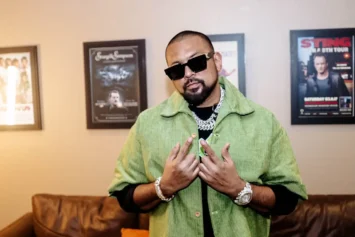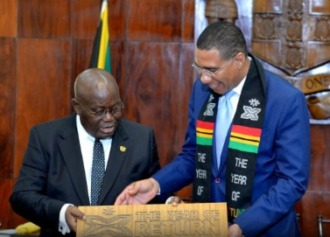
The leader is not necessarily the country that is elected to chair the meetings of the group. For example, it does not matter which country is in the chair of the European Union, it is France and Germany that run things. Similarly, regardless of how many countries are in the Mercosur, Brazil and Argentina are in charge of decision-making.
In Caricom, decisions have always been dominated by Jamaica and Trinidad and Tobago.
What has been established in Caricom is a two-tiered institutional apparatus for decision-making involving a formal rotation of heads of government every six months as chair, and then there is the real leader of Caricom by virtue of status and influence.
The formal tier provides the facade and spirit of democracy, without real power. The influence is exercised by force of personality, e.g., former Barbadian Prime Minister Owen Arthur, by his intellect and forceful advocacy; or by statesmanship, e.g., ex-Jamaican Prime Minister P. J. Patterson, by his consummate diplomatic skills and superior political acumen.
The leadership role in Caricom has usually fallen to Jamaica because it is the largest country and it has demonstrated a penchant for fearless diplomacy. Leadership also devolved to Jamaica because Trinidad has preferred to allow the region to prevail on Jamaica, playing second fiddle because money eventually comes into the reckoning.
This role was played with quiet self-assurance by one of the most dedicated regionalists, former Trinidadian Prime Minister Patrick Manning. He helped St. Vincent and Guyana, beyond what they could ever repay, without a trace of hubris.
The key to the success of Jamaica and Trinidad in wielding influence without arousing animosity among the smaller countries was that neither country ever assumed the right, nor sought the role. If Jamaica or Trinidad played the leadership role it was only after they were asked or forcefully called upon to do so. The leaders of both countries are well aware of the jealousies because they are seen as “big” islands, and because Jamaica is bolder and Trinidad is richer.
The problem for Caricom at this time is that nobody wants to be leader. Jamaica has neither the interest nor the personnel, and The Bahamas has no willingness to get involved. The OECS (Organization of Eastern Caribbean States) have the intellect in St. Vincent Prime Minister Ralph Gonsalves, but his international politics are too chameleonic.
Dr Denzil Douglas, the prime minister of St. Kitts and Nevis, has a lot of experience but is fighting for political survival, as is the president of Guyana, Donald Ramotar. St. Lucian Prime Minister Kenny Anthony is a regionalist who knows that all politics are local, while Barbados is in deep economic crisis. That leaves Trinidad, which does not have the personnel but has a strong and growing economy.
This is the time for the region to press Trinidad into service because it can afford the time and is certainly showing that it has the ambition. The problem is that both the government and the private sector in Trinidad assume that wealth alone bestows on them the mantle and role of leadership of Caricom and have been making statements of readiness.
This is a colossal mistake, because Jamaica and Trinidad are special cases and have to wait to be asked by the other member states to take leadership. Such a request and acceptance is all the more important at this time when Trinidad has the wealth but there is no statesmanship of Patterson, no intellect of Arthur, and no leader of first resort of Manning. If Trinidad is to play the leadership role, it cannot assume the position, it has to be asked.
Source: jamaicaobserver.com


